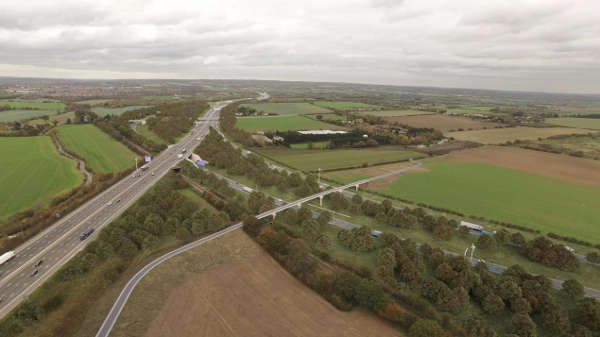An advisor to the Department for Transport (DfT) has said it is considering new forms of economic appraisal in order to bring social and environmental aspects into infrastructure investment analysis.
Nicole Wang leads the transport and infrastructure practice in the EY economic advisory team and is currently seconded in the DfT's COVID Response team, looking at ways to support the aviation sector.
Speaking at the ADEPT autumn conference this year, she claimed the 'build back better' agenda could be supplemented by changes to the Green Book investment guidelines.
'What do we mean [by build back better]? From sustainability perspective we want inclusive and sustainable growth and that has not traditionally been so explicit in the decision-making framework.
'If I use the investment framework used to determine government expenditure - what we call the Green Book guidelines - as part of that there is a lot of economic and strategic considerations but environmental and social [issues] has not been considered in the past in a way that reflect our changing preferences.
'As a result of our economic and social transition I know the Government is looking into that to make sure the framework is changing to adapt to urgent needs as we consider the next wave of investment in infrastfructure.'

The Lower Thames Crossing is estimated to add over five million tonnes of CO2 to the UK's emissions
She pointed out that such issues could be particularly salient in infrastructure investment as 'we are thinking of a horizon of 20 years at least, maybe 50 - we are making the decisions for the next generation and the next, so we need to take into consideration the change of preferences.'
The importance of greening the recovery has been stressed by the Transport Planning Society, which called for an overhaul of British transport's funding and appraisal systems - effectively asking for an end to investment in projects with a large carbon impact.
'Transport projects which increase carbon emissions must be withdrawn and funding for low and zero carbon transport projects and networks increased,' it said in a state of the nation report.
Alex Clark of the Smith School of Enterprise and the Environment at the University of Oxford pointed out that 'there has not really been a serious attempt to consider the costs of pollution in infrastucture planning decisions particuarly when it comes to transport'.
He added there was 'lots of evidence to suggest that the impact and risk factors from particulate pollution, particularly from diesel cars, has very serious impacts and that is something that the UK is behind the curve on'.
'Any infrastructure strategy should be linked to zero carbon - decarbonising is an econmic advatnage,' he added.
Mr Clark pointed to the billions Germany is investing in hydrogen fuel - thought to be the only way of decarbonising heavy industry and transport - 'so they don't lose advantage to China as europe did in solar power'.
He also argued that government support and bailout money should be focused on businesses with a long-term future and should be linked to efforts to decarbonise.
'Local authorities could link repayment of loans to systainability metrics. Use a shadow carbon price. Even if central government does't implement one, local authorities are well positioned to implement a non-real carbon price on their investments as a sense check for what they should and should not be doing' he suggested.
Register now for full access
Register just once to get unrestricted, real-time coverage of the issues and challenges facing UK transport and highways engineers.
Full website content includes the latest news, exclusive commentary from leading industry figures and detailed topical analysis of the highways, transportation, environment and place-shaping sectors.
Use the link below to register your details for full, free access.
Already a registered? Login